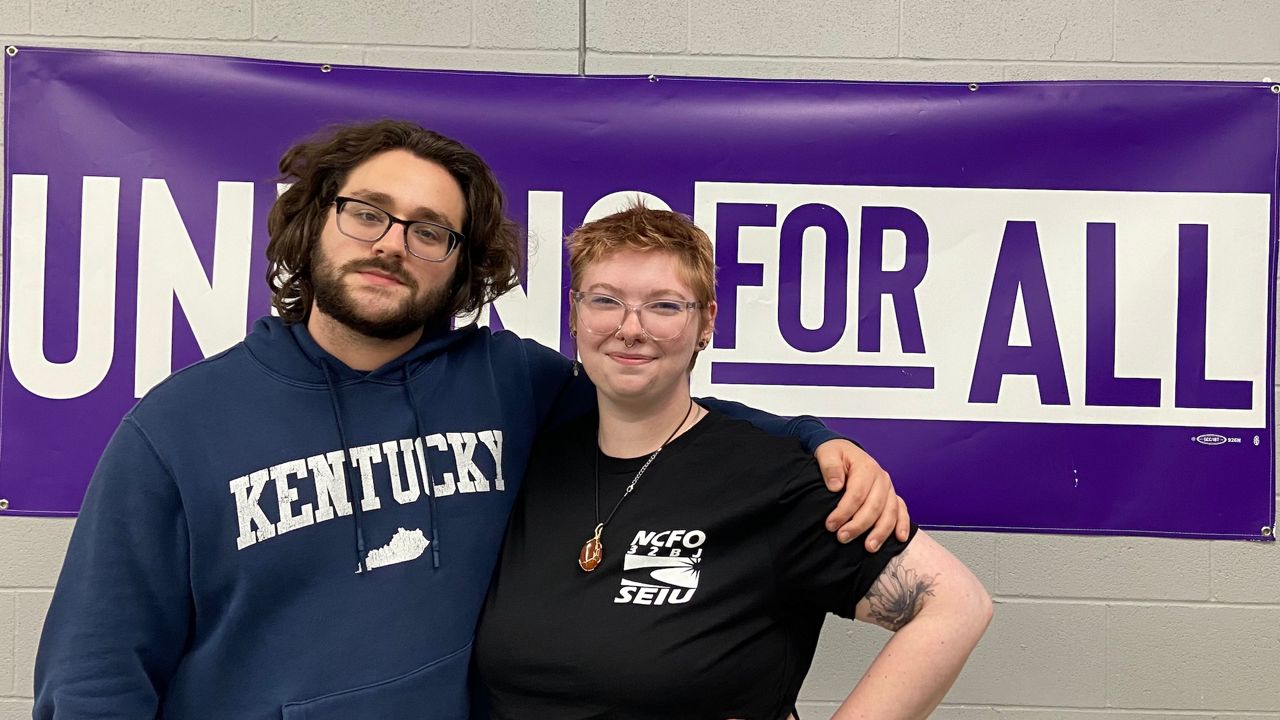LOUISVILLE, Ky. — As the omicron variant sent COVID-19 cases soaring to record levels in January, employees at the Gardiner Lane Heine Brothers said they wanted protection. With the state’s mask mandate long gone, they said they turned to the coffee chain’s management, asking for face coverings to be required for the daily stream of customers.
“We really went through the proper channels to try to get a mandate reinstated and it went absolutely nowhere,” said Sabrina Lindsey, 24, who works at the Gardiner Lane store. That provided the final push she and other workers needed to move toward unionization.
Six months later, the effort to unionize the roughly 200 workers with the Service Employees International Union (SEIU) is approaching its next phase. An organizing committee is currently gathering signatures to submit to the National Labor Relations Board, which would result in a union election. The petition must have signatures from 30% of the potential bargaining unit to trigger an election, but organizers said they want more.
"We're working towards a super majority before we file," said Aaron Bone, who works at the Heine Brothers Northfield location.
That process has been affected by what Lindsey called “fear mongering” from the company. Management, she said, is telling workers that signing the NLRB petition is “legally binding to have the union represent you,” which is not true. It's also sowing division by telling workers that the union organizers aren't planning to stay with the company long. Lindsey has worked at Heine Brothers for three years.
Heine Brothers did not respond to multiple requests by Spectrum News 1 for comment.
Bone said the company has also used a classic anti-unionization talking point, arguing that a union would serve as an unhelpful third party between workers and management, harming that relationship.
“We just try to respond back by saying that a union is made of employees,” Bone said. “It’s not an outside party. It’s you.”
Bone said he isn’t interested in preserving the current relationship between workers and management, anyway. In addition to complaints about the working condition in stores — “the air conditioning was in and out and nobody would seem to care,” he said — Bone argued that the process for raising concerns at Heine Brothers is insufficient and rarely results in a response.
“I have never once felt heard,” he said.
“I’ve brought several issues to HR and I've been promised that they would go up to the upper channels and we never heard anything,” said Lindsey, who also raised concerns about the way Heine Brothers has handled worker response to social issues.
In 2020, workers moved quickly to respond to Black Lives Matter protests by putting up signs in solidarity. “In less than 24 hours,” Lindsey said, “we received a message about taking them down.”
Also in 2020, Lindsey said she submitted a request to hang a pride flag at the Gardiner Lane location and was denied. She did the same last summer and was once again denied. “I pretty much said that I have the full force of my store behind me and we will tell people about it,” she said. “Suddenly, we got a pride flag.”
Bone said these incidents demonstrate that the company fears public backlash. "They simultaneously want to take advantage of younger people's profiles and be a hip, LGBT-friendly environment, but they don't want to have any of the tangential opinions," he said.
In a video posted to the @HBWorkersUnion Twitter account, a dozen or so workers describe issues they have with the company. They say they want more respect on the job, improved health care, more diverse hiring, and a break room, among other changes.
Both Lindsey and Bone are hopeful that unionizing will result in higher pay, better working conditions, and a more democratic workplace. But they’re also hoping to be part of a shift in society that is seeing service workers command more power in the workplace.
Coffee shops have been a particular bright spot in the growing food industry unionization effort, with independent chains around the country organizing and more than 100 Starbucks stores, including one in Louisville, unionizing.
Bone said by choosing to organize and improve the workplace, rather than quitting and moving to another job, he and other organizers are looking out for their co-workers and future Heine Brothers workers. They’re also rejecting what he called the “saloon door of abuse” that often exists in the service industry.
“A lot of service-based businesses rely on their poor conditions to keep flushing people in and out,” he said.



